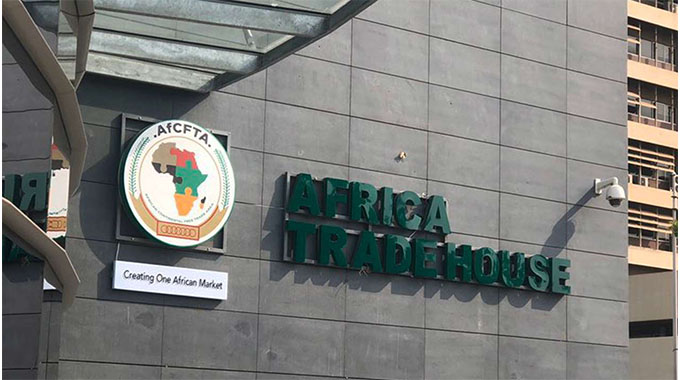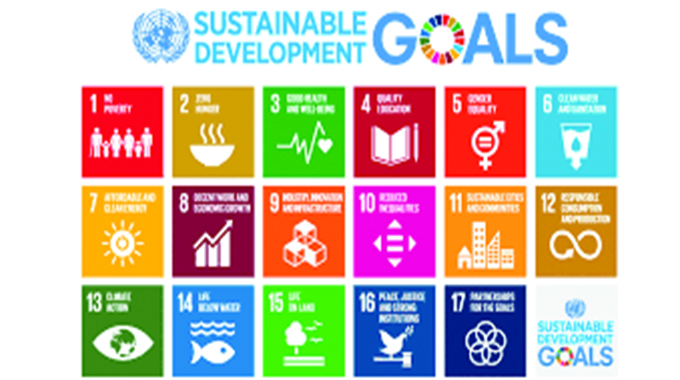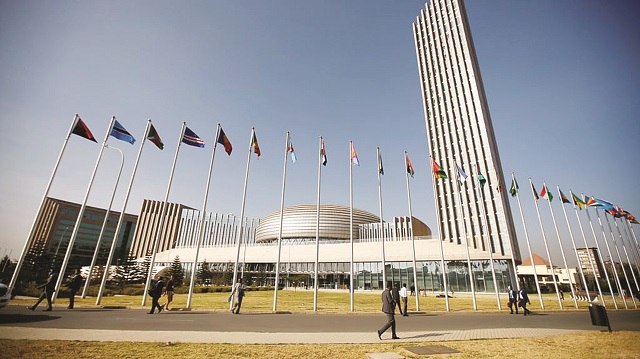AU Industrialisation Summit: Time to fully operationalise AfCFTA is now

Prosper Ndlovu, Business Editor
SHOWCASING strides in Africa’s industrialisation must be at the core of the continent’s efforts to address key structural economic and development transformation gaps.
Existing fragilities are already being magnified by value chain disruptions occasioned by the Covid-19 pandemic and the prevailing geo-political complications.
As part of building the regional transformation momentum, a high-level Africa Union (AU) Summit on Industrialisation and Economic Diversification is being convened this week in Niamey, Niger under the theme: “Industrialising Africa; Renewed commitment towards an Inclusive and Sustainable Industrialisation and Economic Diversification”.
The summit is part of the Africa Industrialisation Week (AIW — 20-25 November 2022), annual commemorative activities.
It seeks to highlight Africa’s renewed determination and commitment to industrialisation as one of the central pillars in attaining the continent’s economic growth and development goals as articulated in Agenda 2063 and Agenda 2030.
President Mnangagwa is expected to attend the event, which brings together the AU Commission and its organs, Heads of State and Government, ministers responsible for industry, trade, mining, development partner agencies, industry leaders, civic society and investment financiers and other relevant stakeholders.
In light of the key and strategic interdependences between industrialisation and the AfCFTA, this week’s summit aims to rally desired political momentum, resources, partnerships and alliances towards an Africa industrialisation drive.
“This is along the continent’s resolve to drive structural transformation, built around leveraging Africa’s rich and diverse natural resources while at the same time embracing current advances in technologies, continental and global geo socio-political trends and emergence of tradeable services,” said the AU in a pre-summit brief.
The summit is also set to unlock the evolution of a vibrant Pan-African enterprise and capital base that will unleash an inclusive and sustainable industrialisation pathway that carries along with the participation of all economic agents, including SMEs, youth, and women in the generation of national wealth and creation of jobs as well as expansion of entrepreneurship opportunities.
As one of the pioneer signatories, Zimbabwe has already anchored its industrialisation policy in readiness to tap into the vast investment and trade opportunities under the AfCFTA and what remains is scaling up private sector awareness and buy-in, Industry and Commerce Minister, Dr Sekai Nzenza, has said.
The minister would be part of this week’s proceedings and is on record calling for consolidating domestic and regional value chain drive towards building resilient and sustainable industries as opposed to reliance on exporting raw materials.
“The Africa we want is an Africa that trades with itself. The history of industrialisation is connected in Africa, the future of industrialisation is ours to collectively design,” she said.
AfCFTA Secretary General, Mr Wamkele Mene, who met industry and commerce executives in Bulawayo last week, has said there is need for full integration of the African countries to reach full utilisation of the free trade area.
He indicated that there are regulations, which are being put in place to facilitate all local goods and services to have zero duty when trading within the continent by year 2035.
“The ambition is that by the year 2035, at least 93 percent of trade within Africa will attract zero duty hence we are completely eliminating duty for intra Africa trade.
“That shall be embedded in local content requirements, which we refer to as Rules of Origin. The Rule of Origin is specifically intended to have a threshold for local content and make sure that value edition takes place in Africa,” said Mr Mene.
While importation of products from outside Africa shall continue to attract duty as usual, Mr Mene has said the concept of Rules of Origin will help to ease trade among African countries as 88 percent of the products will have the same Rule of Origin.
“We are now able to trade in goods and services using the same rules. The importance of this Rule of Origin is to make sure that industrialisation happens within Africa,” said Mr Mene.
“So, we are creating a market for ourselves and we are protecting that market using trade and investment rules.”
Since 2018, the Africa Industrialization Day (November 20) has been commemorated with weeklong events, marking a departure from the one-day tradition.
This affords more time to reflect and accelerate actions towards Africa’s structural transformation, as an enabler to meet the objectives of Agenda 2063, and global Sustainable Development Goals (SDGs) 2030.

Sustainable Development Goals (SDGs)
According to the AU pre-summit document, the operationalisation of the AfCFTA Agreement, which was launched in January 2021, and its nexus with ongoing industrialisation efforts, will be under intense focus this week.
Economic experts are agreed that once fully implemented, the AFCFTA will create a single African market for goods and services, covering an estimated 1.3 billion people with a combined Gross Domestic Product of over US$2.5 trillion across 55 member states.
The official establishment of the AfCFTA Secretariat in Accra, Ghana two years ago, is already a significant milestone towards the full implementation of the free trade agreement.
Never before has the continent strongly set its focus on a heroic journey to build a one-Africa integrated economy.
While the vision began in earnest decades back, it has been more amplified, leading to the historic signature to the agreement in Kigali, Rwanda.
“To achieve the aspirations of the AfCFTA, Africa’s industrialisation and transformation agenda needs to be supported at the highest national, regional, continental, and global levels,” says the AU.
“Such a focus will be key to accelerate efforts in a selected number of key policy areas – such as energy and road infrastructure, trade facilitation, financial sector development, education development, agro-industrial transformation, green industrialisation and technological innovation and transformation. “Advancing the AfCFTA and Africa-Industrialisation side-by-side with deliberate efforts to realise the mutually reinforcing interdependences between the two will provide Africa’s critical success pillar and condition for Agenda 2063.”
Among the key thematic areas set for discussion this week will be; industrialisation, government fiscal capacity and creating jobs, technological innovations and organisational capacity in driving enhanced competitive industrial performance, regional industrial value chains, partnerships and alliances to deliver on Africa Industrialisation, multi-sectorial approaches to industrialisation.
The summit will also engage on unlocking youth and women-led MSMEs in driving success in Africa industrialisation, resource governance and leveraging financial and non-financial resources towards industrialisation, harnessing indigenous knowledge, as well as medical product industries in post Covid -19 area, with special focus on pharmaceutical industries.
The outbreak of Covid-19, and the Russia-Ukraine conflict, have exposed the risks of a weaker intra-regional trade and the continent’s reliance on imports from developed countries.
Such disruption has further heightened the risks of perpetuating the continent’s trade and business vulnerability globally, with most commodity-dependent nations.
“While Covid-19 is creating a significant economic and health crisis, it also presents an invaluable opportunity for the continent to re-configure its development narrative towards prioritisation of initiatives that foster to accelerate Africa’s industrialisation,” said the AU.

The African Union headquarters in Addis Ababa, Ethiopia
“Covid-19 and its attendant disruption of global supply chains have brought to the fore the urgency and significance of driving industrialisation in the continent. More fundamentally, the pandemic has openly exposed the hollowness of African economies on several fronts, including the fragility and weakness of Africa’s industrial capabilities.”
Development of strong regional and local/national value chains is, thus, seen as a game-changer towards building resilient Small to Medium Enterprise production capacity in the continent, as well as grabbing business opportunities emanating from the Covid-19 induced disruptions of global value chains.
The AU has said the industrialisation prospects for the continent are anchored on unleashing the growth of small and micro-enterprises, in particular, guided by the regional SMEs Strategy, whose development was informed by evidence-based mapping of the peculiarities of the continent’s production systems.
“By creating business-enabling conditions across Member States that can enhance the longevity rate of Micro, Small and Medium-Sized Enterprises (MSMEs), the continent’s industrialisation momentum can be fueled,” it said.
While the continent’s industrial policy landscape stretches back to the 1980s from the First Industrial Decade for Africa, all the way to the Accelerated Industrial Development of Africa (AIDA, 2008), globally, the United Nations General Assembly (UNGA) has further magnified the significance of Africa’s industrialisation through the adoption of a Resolution in July 2016 that dedicated the period 2016-2025 to the Third Industrial Development Decade for Africa (IDDA III).
However, the continent’s economic performance has rather remained sluggish due to persistent development, which necessitates the need for effective, efficient and timely deployment of action beyond political rhetoric for any meaningful impact on delivering sustainable human development in the continent in the medium- to long-term more so, says the AU.
“What is critical at the moment for Africa is to acknowledge, the need to chart a revived focus towards a rejuvenated Pan-African industrialisation agenda, and framework informed by lessons learnt this far from previous programmes, taking full cognisance of the current and evolving social, economic and political trends, and developmental needs of the continent,” it said.












Comments